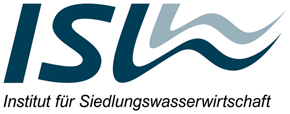

Project Funding: BMEL
Funding Reference: 2222NR052C
Project Duration: 07/2023 - 06/2025
Project Coordinator:
Prof. Dr.-Ing. Thomas Dockhorn
Scientific Project Work:
M.Sc. Tim Gebhardt

Project Management: Prof. Dr.-Ing. Thomas Dockhorn
Scientific Project Work: M.Sc. Tim Gebhardt

The cultivation of rapeseed, Germany's most important oil crop, generates almost 10 million tons of rapeseed straw every year, of which a high proportion of 30-50% could be reused as an agricultural by-product. Nevertheless, rapeseed straw is hardly reused and remains mainly in the field for rotting. Studies on the use of rapeseed straw as a biogas substrate have shown varying results, which indicate that, in addition to substrate harvesting, the subsequent treatment of the substrate in particular has a decisive effect on the economic efficiency and biogas yield. Initial test results from the LIGNOFLEX project at the Bayerischen Landesanstalt für Landwirtschaft (Bavarian State Institute for Agriculture) show ways that make degradation of rapeseed straw in biogas plants appear economically efficient thus making a decisive contribution to exploiting a previously untapped potential for energy production from renewable raw materials in Germany.
The RAPSSTROH research project aims to identify the most promising approaches for the substrate preparation of rapeseed straw in a comparative study to ensure the greatest possible economic efficiency in practice. The main aim of the project is to optimize biogas production from rapeseed straw through chemical, biological or hydrothermal substrate pre-treatment or through ensiling or drying as substrate preservation with regard to economic use in biogas plants.
In Work Package (WP) 3, the Institute of Sanitary and Environmental Engineering will investigate the hydrothermal pre-treatment and continuous degradation of rapeseed straw. One focus is on determining key performance indicators for the degradation of rapeseed straw in semi-continuous one- and two-stage half-scale pilot plants. In addition, rapeseed straw and digested samples will be hydrothermally disintegrated and the disintegrated samples will be analyzed in order to be able to compare possible effects of different hydrothermal disintegration/pre-treatment methods on the biogas and methane formation potential in the semi-continuous approaches. The treated substrates will be made available to the project partners for further investigations.
The project results will be used to formulate practical recommendations for biogas plant operators and planners, taking into account the framework conditions for flexibilization and biogas practice such as regional location and substrate availability. The results of this project will be presented and discussed at an expert meeting. At the same time, this expert meeting is intended to present the recommendations. The results will be made available.
Vacancies of TU Braunschweig
Career Service' Job Exchange
Merchandising
Term Dates
Courses
Degree Programmes
Information for Freshman
TUCard
Technische Universität Braunschweig
Universitätsplatz 2
38106 Braunschweig
P. O. Box: 38092 Braunschweig
GERMANY
Phone: +49 (0) 531 391-0
